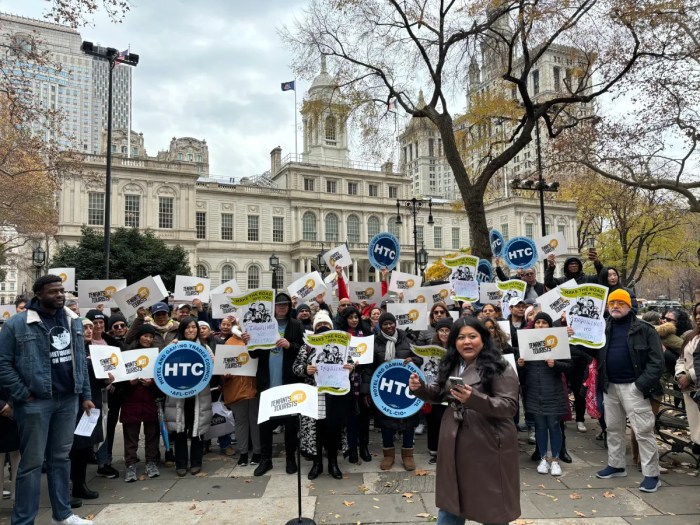By Rich Bockmann
Last year the NYPD stopped nearly 700,000 people across New York City — the majority of whom were young black and Latino men — but Manny Yusuf does not exactly fit that description.
“My first encounter with stop-and-frisk was in April [2011] at the train station on my way home from school,” Manny, a 14-year-old-Bangladeshi girl, testified at a City Council hearing on stop-and-frisk at York College Oct. 24. “I was pulled over by an officer out of a group of my friends because, I believe, I was the darkest skinned.”
Manny, a youth organizer with the Jackson Heights-based activist group Desis Rising Up and Moving, said she believed the police systematically harassed communities of color.
“How do you think it feels to be stopped by officers when you are just walking home from school?” she asked.
In 2011, the NYPD stopped 685,724 people, nearly 52 percent of whom were either black or Latino, according to a report released by the New York Civil Liberty Union earlier this year.
For more than two hours, members of the Council Civil Rights Committee heard testimony from people affected by stop-and-frisk. Committee Chairwoman Debbie Rose (D-Staten Island) said the committee was interested in gauging support for four stop-and-frisk reform bills known as the Community Safety Act currently being considered by the Council Public Safety Committee.
“The [Public Safety] Committee felt it’s important for the public to have a venue to talk about stop-question-and-frisk and their communities,” she said.
Adil Polanco said he is an NYPD officer who was retaliated against because he refused to meet quotas, or what the department calls “productivity goals.”
Polanco said stop-and-frisk could be an effective tool, but it was being misused. When his allotted three minutes to speak were up, he pleaded, “I’ve been waiting for this for a long time.”
“I know. That’s why I’m giving you more time because you’re telling a story from a voice we have not heard at previous hearings,” Rose said.
The Civil Rights Committee’s four members, including Queens legislators Jimmy Van Bramer (D-Sunnyside) and Julissa Ferreras (D-Corona), were joined by Councilmen Leroy Comrie (D-St. Albans) and Ruben Wills (D-Jamaica), as well as several other Council members from across the city, every one of whom had signed on to sponsor the Community Safety Act. The act’s reforms include creating an inspector general to oversee the NYPD and requiring officers to obtain consent for searches.
Legislators currently considering the bill in the Public Safety Committee include Chairman Peter Vallone (D-Astoria) and committee members James Gennaro (D-Fresh Meadows) and Eric Ulrich (R-Ozone Park), none of whom have signed on as sponsors of the bills, but committee member Dan Halloran (R-Whitestone) has. Council members Mark Weprin (D-Oakland Gardens), Karen Koslowitz (D-Forest Hills) and Elizabeth Crowley (D-Middle Village) have also not formally signed on to support the bills.
Speaking through an interpreter, DRUM member Naz Ali said she believed the NYPD was spying on her community because she spoke out against the police, and urged legislators to support the act.
“We need the Community Safety Act, and in particular I’d like to emphasize that the Queens members, many of whom have not signed onto these bills, I strongly urge you as residents of your districts to please sign these bills,” she said.
Members of Make the Road NY, another Jackson Heights group, also testified.
Reach reporter Rich Bockmann by e-mail at rbockmann@cnglocal.com or by phone at 718-260-4574.






































